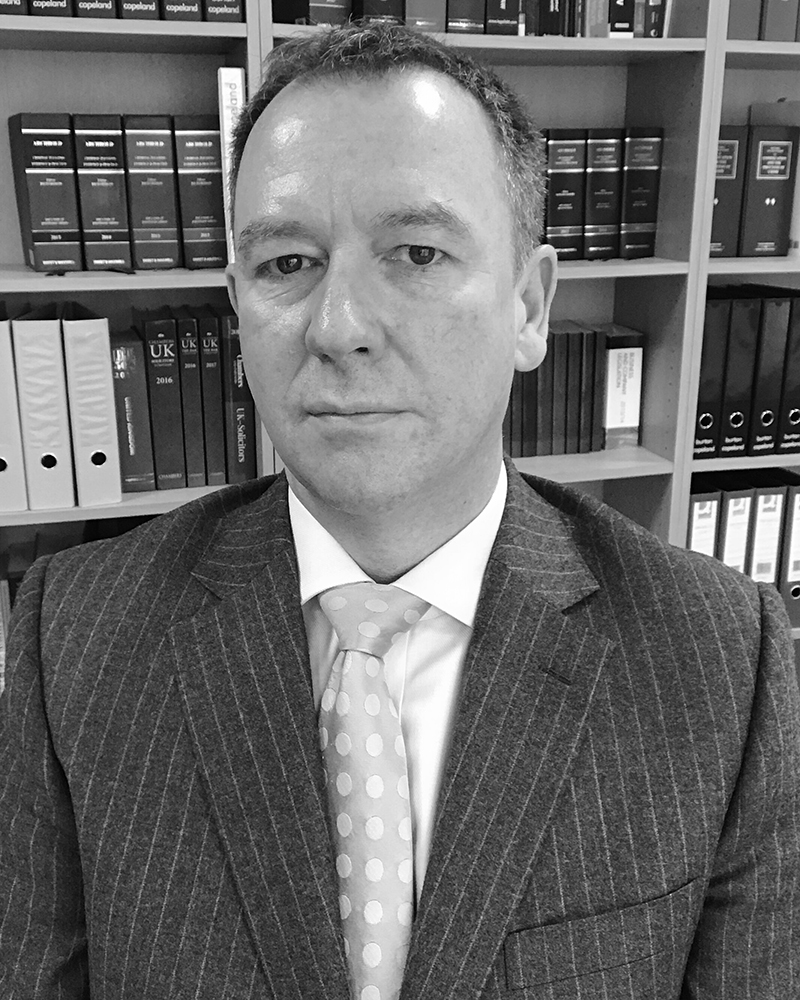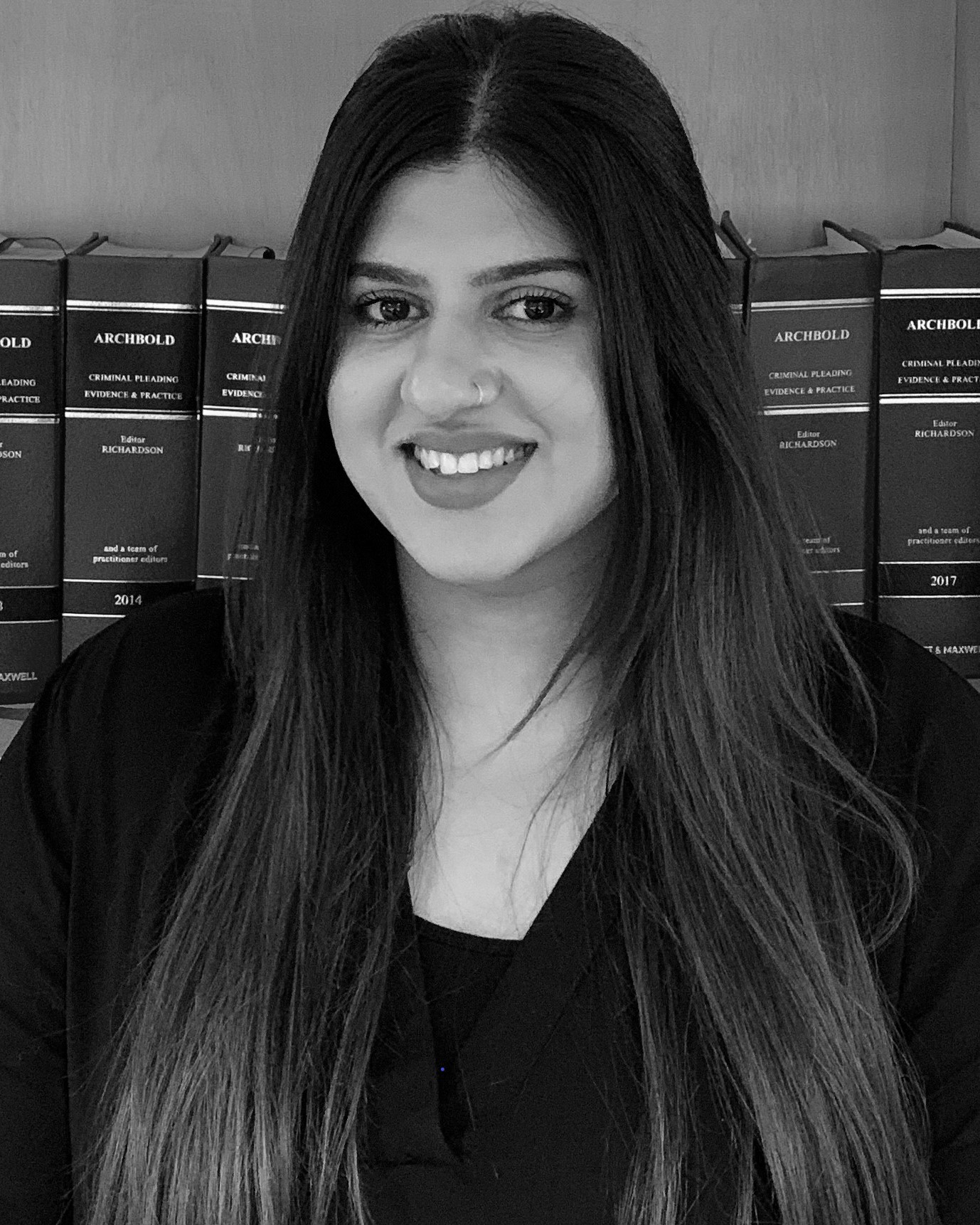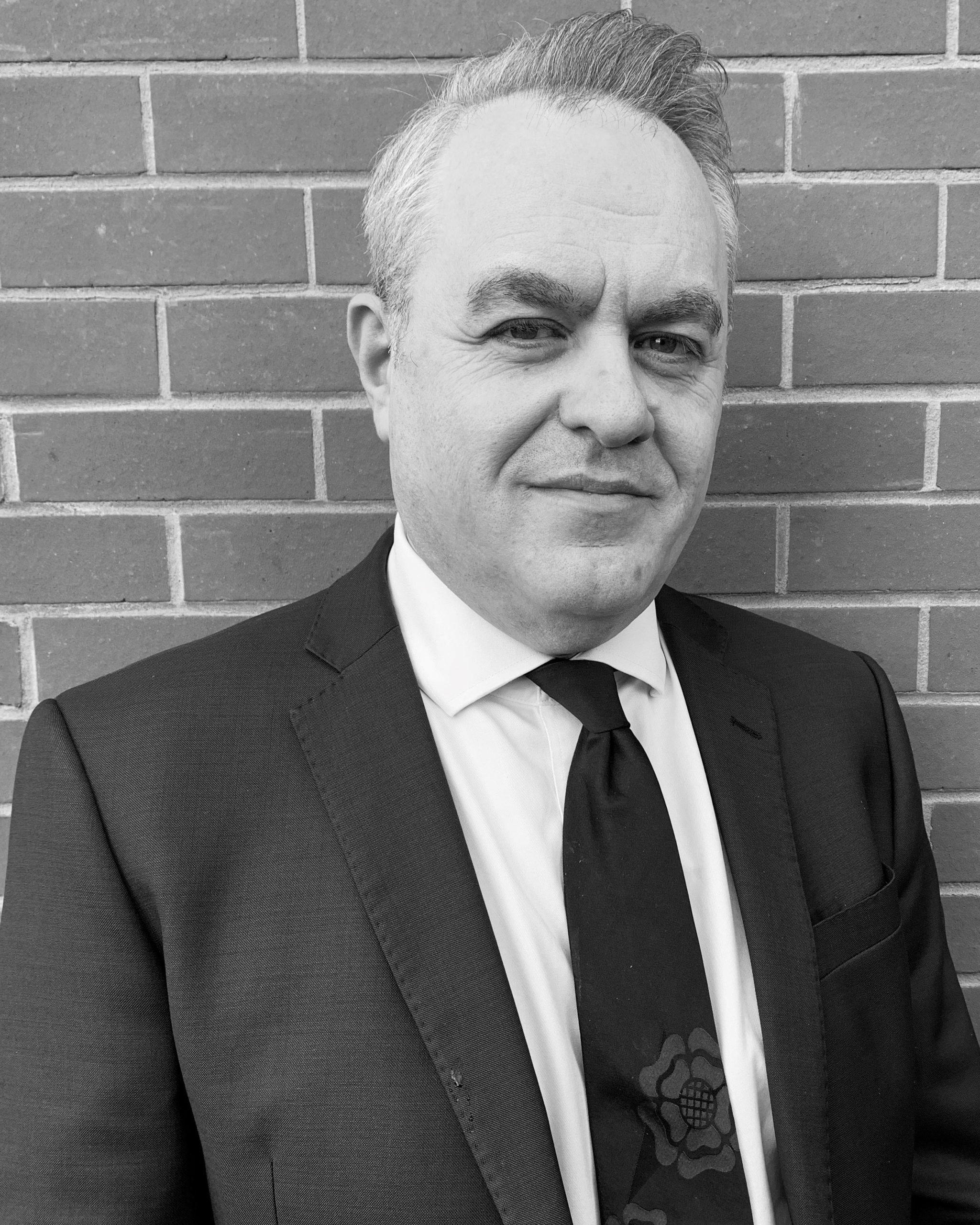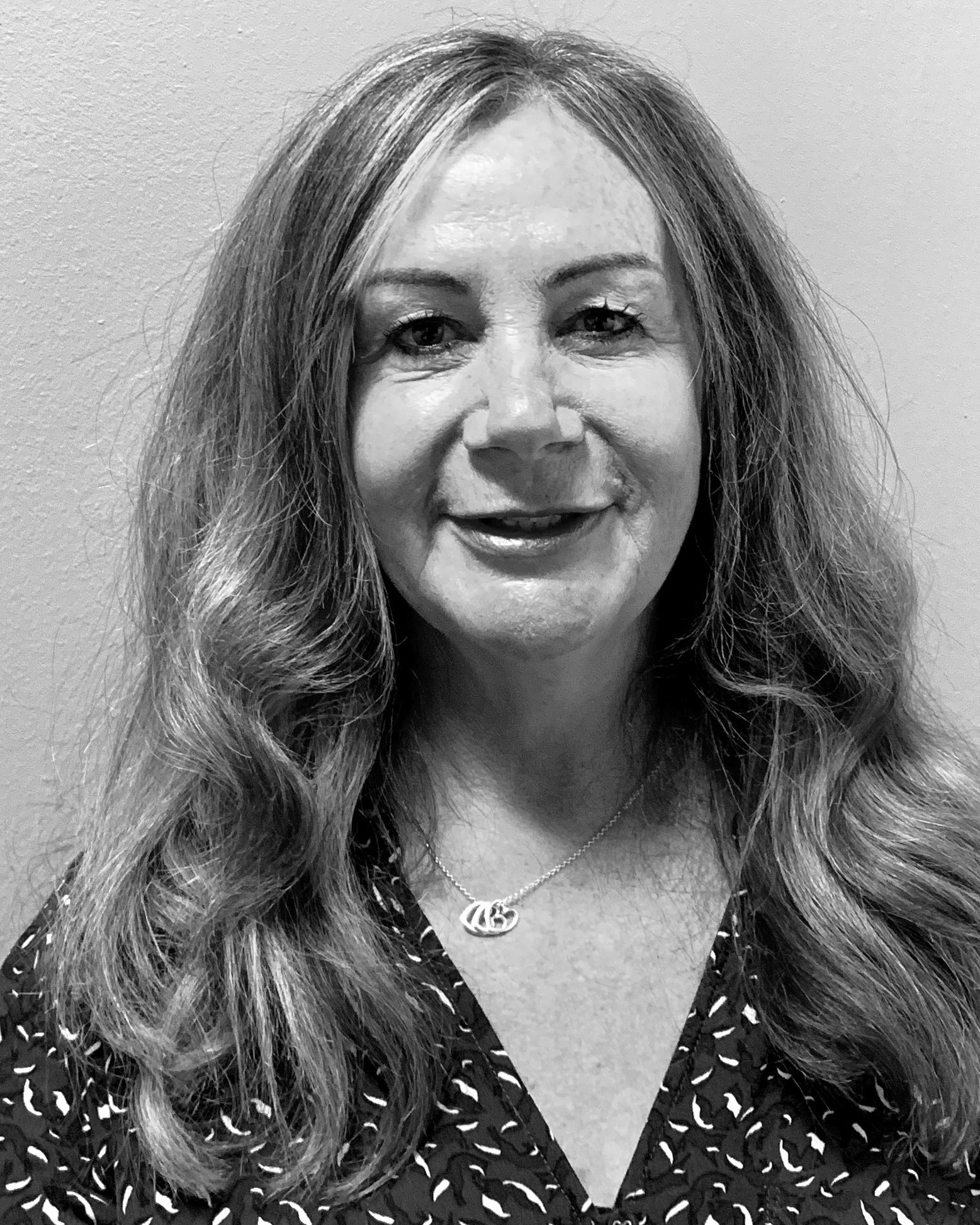
Jonathan Wall
Partner - Non Solicitor
Jonathan joined Burton Copeland Solicitors in 1990 and since then has worked at all levels of case preparation. During this time he has gained extensive knowledge and experience in all aspects of criminal law having built up a reputation in a career spanning over a quarter of a century.
Now concentrating on serious and complex criminal cases such as large scale fraud, robbery and drug conspiracies. He has also achieved unrivalled successes in the many complex murder allegations he has defended in. More recently and particularly since the many historic sexual abuse allegations being made in the wake of the Jimmy Saville investigation, and formation of Operations Yewtree, Pallial and a number of others, he has worked on a number of high profile allegations of historic sexual offences.
He has a particular interest and pursuit for justice in false allegations and finds that defending these types of cases is challenging yet interesting and extremely rewarding. Jonathan said;
“Despite IPCC guidance to the contrary, many police forces complete “complainant focused investigations” looking only for evidence which supports the alleged victim and not for evidence which undermines them or assists the defendant. Without this type of material the jury will simply have to consider the word of the accuser against the word of the defendant and will inevitably speculate about why an allegation has been made if it isn’t true.
It is vital that in defending these types of allegations you secure the services of a lawyer who will ensure that meticulous analysis and investigation takes place. The first investigation is for the defence to establish what information the prosecution has, what they have or have not done and ensure that we obtain disclosure of all material and information, despite the prosecution often being reluctant to do so. Secondly, the defence then needs to work as investigators both to obtain evidence to support their client in an attempt to establish that the accusations could not have taken place. But also, investigate the accuser/s in order to undermine the case for the prosecution by finding reasons, such as vengeance or compensation, as to why the alleged victim might have fabricated an allegation”.
Jonathan’s vast experience in criminal law and disclosure issues has led to many other victories in a number of areas of criminal law, including Proceeds of Crime Act (POCA) confiscation proceedings, challenges to Sexual Offences Prevention Orders, Serious Crime Prevention Orders, and the defence of Interested Parties at inquests.
Legal 500 “Key Figure”
Jonathan has developed a wealth of knowledge and expertise in many areas of law, his experience was first recognised in the 2016 edition of the leading publication The Legal 500 naming him as a “Key Figure” within Burton Copeland and noted his work “in cases of historical sexual abuse and sexual offences”. He has been named in all editions as a “Key Figure” since then.
IN 2017 he was awarded “Paralegal of the Year” in 2017 at the Manchester Legal Awards following which he was made a partner of the firm in 2018. Jonathan is the first lawyer who is not a solicitor to have achieved partnership status in Burton Copeland’s 30 year history. Within a year of being made partner he was appointed finalist as “Partner of the Year” at the Manchester Legal Awards.
Jonathan regularly writes blogs and articles for the Burton Copeland website and has written many articles which have featured in the Law Society’s Messenger publication, including on the front page.
Case Studies:
Blackpool Business Man Cleared of Large Fraud Conspiracy
Contact
To contact Jonathan click here to email him direct or call him on 0161 827 9500 or 07789 651334
Notable Cases
Inquiry into the Grenfell Tower Fire – Jonathan heads a team of five lawyers who have been instructed by the Fire Officers Association who offer representation, help, assistance and guidance for members in particular the Fire Sector Commander who was inside the building and directing operations for the majority of the incident. Jonathan instructed Louis Browne Queens Counsel and co-authored final written submissions at the conclusion of phase 1 of the inquiry which focused on the events on the night of the fire and the emergency response. The inquiry continues.
Independent Inquiry into Child Abuse – Jonathan was instructed by a witness to the inquiry to prepare submissions to the panel in support of his evidence which was was in direct conflict to that another witness, Richard Farnell, the former leader of Rochdale Council. Jonathan prepared detailed submissions to the inquiry setting out why the evidence of his client should be preferred over that of Mr Farnell. The inquiry later published a report in which it confirmed that it had “carefully considered all the evidence referred to within the letter in reaching our conclusion on this issue” and that the letter “sets out in great detail why, in effect, we should favour [their clients evidence over that of Farnell]”. The conclusion in the report is that “Mr Farnell lied to the Inquiry in the course of his evidence”. Shortly after the publication of the report it was reported that the Metropolitan Police Service were to investigate Mr Farnell for perjury.
Inquests into the Hillsborough Stadium Disaster. – Commencing on the 31st March 2014 and finishing on 26th April 2016 the inquest made legal history by being the longest ever legal tribunal ever to have taken place.
Alongside two other partners, Jonathan headed a team overseeing 25 other lawyers representing several clients nominated as interested parties by the Coroner, Lord Justice Goldring.
“Our clients were granted properly interested party status only a few months before the hearing began which meant that we had to set up a team and systems extremely quickly and ensure that we worked as efficiently, yet methodically as possible, ensuring that our clients received the best representation”
The case involved over a million pages of evidence, thousands of hours of CCTV and media footage as well as complex medical, pathology and survivability issues.
R v L– successfully defended in a large scale multi handed alleged gang murder. The case was one of the first of its kind as it involved hundreds of hours of CCTV footage which had been viewed by police officers who then supplied viewing logs giving their opinion as to what the footage showed. The Crown sought to establish that the police officers were “experts”. The footage was of poor quality and we disputed the interpretation of the police officers as to what the footage showed and instructed a former RAF officer and expert of 20 years in imagery who enhanced the footage and demonstrated to the jury that the object the police had interpreted to be a weapon was in fact an artefact [a trick of the light which was not actually there]. The defendant was acquitted of murder.
R v H– large scale Trading Standard prosecution collapsed following the submissions made on behalf of a Blackpool businessman who was accused alongside his staff of conspiracy to defraud. Burton Copeland led the successful legal arguments in relation to the prosecution failing to examine telephone recordings which were seized by trading standards offices when his business was raided which the defence maintained would prove that the prosecution assertions that customers had been duped were clearly wrong. All defendants were acquitted. Press Coverage
R v L– defended in what was then the largest importation of class ‘A’ drugs into the United Kingdom. The case involved complex issues of law relating to a participating police informant (often referred to as “supergrass”) , telephone and cell siting evidence and also evidence from other overseas prosecuting authorities in the Netherlands, France and Belgium.
R v McGarry– Represented from police interview, magistrates court through to Crown Court trial and then to an appeal to the Court of Appeal, in what was one of the first prepared statement cases given during a police interview. Despite the trial judge indicating that it was for the jury decide on what inference to hold, the Court of Appeal disagreed indicating that the statement prepared by Jonathan fulfilled all the statutory requirements and that the judge was wrong in his direction to the jury. The case led to the “McGarry direction” still being used in criminal courts on a daily basis throughout the UK.
Jonathan Wall: Testimonials
I was highly impressed with the way in which my case was handled by Jonathan from my initial instruction to its conclusion, Both my partner and I were treated with the utmost courtesy and no query was too small nor too great for Jonathan and the team. He went above and beyond to help me. Jonathan explained the whole legal process in relation to my case in a clear and comprehensible manner. He also treated me with respect and total honesty ensuring that I fully understood the available options open to me and their possible outcomes. With his guidance and support, I was able to face up to and make some difficult decisions…I would not hesitate in recommending Jonathan and Burton Copeland.
Mr C – Manchester
“[Jonathan] was a great help and did extremely well supporting me…Thanks”
Miss Lelo (Manchester)
“We used Jonathan Wall from Burton Copeland he was excellent. The service and setup is very professional was available anytime to answer any questions and the advice he gave was always 100% right. Would like to say a massive thank you from me and my family and would highly recommend Jonathon and his team to anyone. Jonathan Wall is a true asset to Burton Copeland”
Vijal Singh (Manchester)
“Bryan and Jonathon both had involvement in my case. They completely understood my situation and were in constant contact with me. My case went all the way to court (surprisingly) and I was found not guilty. I cannot thank them enough as they saved my career. Cannot recommend them highly enough.”
Rashid Mahmood (Bradford)
“My wife and I used Burton Copeland solicitors a few months ago. We had the pleasure of Gwyn Lewis and Jonathan Wall. Both exceptional men who know the in’s and out of the job. We were blown away at court with the result, due to the exceptional knowledge of Mr McMahon who again was outstanding. I cannot thank you enough. My wife was quite low with the work situation and then the court appearance but after this she has a new lease of life and I do not really think you understand the impact your kindness, honest approach and availability to put her mind at rest has had on her life. Thank you and best wishes for the future. I will of course not hesitate in forwarding your details to any needy colleague!”
David McDonald (Oldham)
From Speaking to Jonathan to arrange representation to Liz on the day from minute one of my experience with burton Copeland I felt well looked after and assured but also appreciated the honesty given by them. Hopefully will not have to use again but would highly recommend. Thanks again
James Tomlinson – Google review
I can’t recommend Jonathan Wall enough. He gained a great relationship with my son, putting him at ease at all times and ensured that I the mother was fully informed of the process throughout. I can thankfully say that we had a positive outcome due to Jonathan’s expertise.
Shirley Donaldson – Google review
A late review but Jonathan and [Yvonne] were amazing for my partner and stuck by him for the last 4 years and defended him to the hilt as well as always keeping him updated at every stage and making us aware of the stages that were next and always being on the other end of the phone when ever he needed someone to talk to. Couldn’t recommend them enough they gave him his life back and amazing advice . Thank you !
Hannah F – Google review
We used Jonathon from Burton Copeland and he was absolutely brilliant. Always available any time of the day to speak to and give advice. Would definitely recommend. Very comfortable and professional set up.




